Exploring the… Weirder Side of Reproduction: A Reading List
Sara Flannery Recommends Some Sci-Fi Takes on Procreation
From one angle, pregnancy is all gentle pastels and cartoon storks. During my first pregnancy, I caught on: this sweetness is the mere window dressing for the total weirdness of conception and childbirth. Getting used to a rapidly changing body was tricky enough without the existential wildness of bringing a new consciousness into the world. After I saw the second line on the test, I lay awake most of the night, thinking: I was just allowed to do this? Build another person?
In my novel, Girl One, I explore an alternate history in which parthenogenesis (i.e., conception without male DNA) is a reality for human beings, with nine baby girls born on an experimental commune. In honor of the Miracle Babies, I’m exploring nine books that prove, in different ways, that the question of how we get here is one of the richest topics in literature.
*
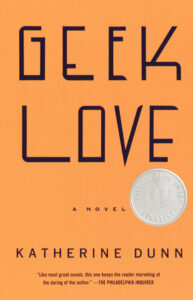
Katherine Dunn, Geek Love
(Vintage)
I discovered Geek Love in my teens, curious about its deceptively unassuming cover, soon pulled into the wholly unexpected world of the Binewski family. Overbearing parents are nothing new. But Dunn’s Binewski parents stake their claim before their children are born, using radioactive exposure and toxic substances to guarantee that their children are born “freaks.” In gorgeously weird prose, Dunn explores the fallout of children whose very bodies are a testament to their parents’ whims—a situation both exaggerated and all too familiar to anybody who’s ever had a parent or been a parent.
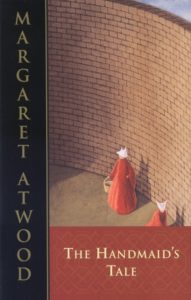
Margaret Atwood, The Handmaid’s Tale
(Anchor)
In an ideal world, Atwood’s 1986 reproductive dystopia might’ve become an eerie glimpse into “a different time.” Instead, for 35 years and counting, The Handmaid’s Tale has stayed fresh. Protestors don the signature white bonnets to fight against legislation that takes aim at women: not surprising, considering that Atwood drew on actual examples of misogyny to flesh out the Republic of Gilead. For many authors of feminist dystopias—myself included—Atwood’s genius is an enduring inspiration, like a secret message carved on a closet wall.
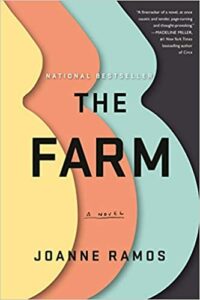
Joanne Ramos, The Farm
(Penguin Random House)
Ramos’s incisive novel isn’t a dystopia, as she points out in her author’s note. For all our scientific advances, artificial wombs still aren’t a reality. Ramos explores the ways that surrogates (often women of color) are exploited for their reproductive ability. Jane sees a financial lifeline in joining Golden Oaks, where she lives with other pregnant Hosts in a cushy but highly surveilled environment. Ramos explores tricky ethical considerations: for example, a religious Host whose clients request a termination, or the conflict Jane feels at being separated from her own daughter to gestate for anonymous one-percenters.
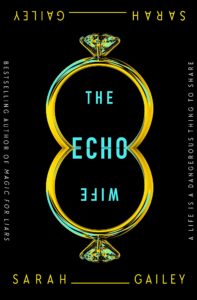
Sarah Gailey, The Echo Wife
(Tor)
Hear me out: while not explicitly about reproduction, Gailey’s thriller is an engaging exploration of bringing life into the world. Evelyn Caldwell doesn’t want children with her husband—her sole focus is her groundbreaking work in cloning. When her husband goes behind her back and creates a clone of Evelyn, she’s tasked with caring for a mirror version of herself. As a parent, I’ve bemoaned and marveled at the ways raising children feels like interacting with tiny doppelgangers. Evelyn’s relationship with her clone—the frustration and tenderness, the places where the two of them diverge or overlap—becomes a compelling portrait of reluctant parenthood.
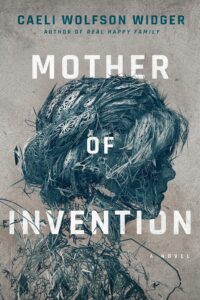
Caeli Wolfson Widger, Mother of Invention
(Little A)
Nine months. Forty weeks. In Mother of Invention, protagonist Tessa Callahan calls the length of human gestation into question, using biotechnology to reduce that time to nine weeks. Tessa believes a reduced pregnancy could help busy women—who wants to set aside nearly a year to grow a baby when a couple of months would do? It’s an efficiency dream come true. But Tessa begins to realize that the tradeoff might be too risky. Widger examines the space between the benefits and drawbacks of rapidly changing reproductive technology, and how this impacts mothers and babies alike.
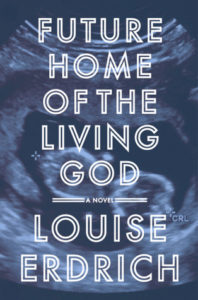
Louise Erdrich, Future Home of the Living God
(Harper Perennial)
As much as society plays lip service to motherhood with rose bouquets and sappy diaper commercials, moments of crisis reveal the sense of ownership that can underpin it all. In Erdrich’s novel, biological life begins to devolve, and pregnant people become commodities, hunted down by those desperate to control a dwindling population. Cedar Songmaker will hold on to her baby at any cost, dodging kidnappers, escaping terrifying institutions. Anyone who’s ever felt like public property while pregnant—strangers touching a belly or lecturing about caffeine in a Starbuck’s—will see an uncomfortable echo in this haunting dystopia.
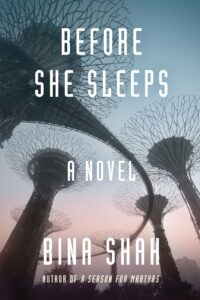
Bina Shah, Before She Sleeps
(Delphinium Books)
Usually, when we discuss the dangers of forced plural marriage, we focus on polygamy. Shah goes with the reverse. After an endemic strain of HPV shifts the gender balance, the surviving women are tasked with reproducing with as many husbands as possible. Those who rebel against a life of constant pregnancy and government-assigned husbands can go underground, but even these rebels must provide illicit services to men to get by, offering emotional support for a single evening. Whether repopulating the earth or doling out empathy, the women in Shah’s future are only valued in ways that harm them.
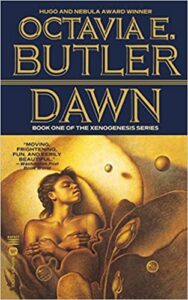
Octavia E. Butler, Dawn
(Aspect)
Butler, an icon of science-fiction, tackles the complexity of reproduction as only she can. After humanity’s been ravaged by nuclear war, Lilith is kidnapped by an alien race called the Oankali. These beings offer the surviving humans a chance to repopulate Earth, but it involves merging human DNA with the Oankali’s. Altering their humanity is terrifying to many of the survivors, despite their limited options. As she considers becoming the vessel for her species’ continued existence, the brave and resourceful Lilith grapples with powerful questions: What does it mean to give birth to offspring so vastly different from you? What does true survival look like?
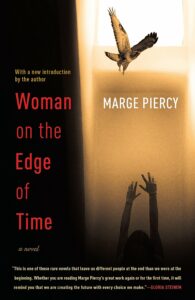
Marge Piercy, Woman on the Edge of Time
(Ballantine)
This was one of my first introductions to feminist sci-fi. Woman on the Edge of Time is defiantly optimistic, envisioning a future in which reproduction is divorced from sex and gender. Children are gestated in artificial wombs and are raised by three nurturing parents of any gender combination.
Pregnancy has all too often been treated as a liability. Piercy’s artificial wombs make sense, considering this. How do we keep pregnant people from being oppressed by the vulnerable, powerful act of creating life? By outsourcing it entirely?
During my research, I noticed that Piercy originally wanted her utopia to include an option for people to experience pregnancy and birth—but only if they wished. Instantly, I saw a future where pregnancy is a true choice. Safe, respected, and free of gendered expectations. This note of hope reminds me that the future of reproduction can look any way we want it to.
__________________________________
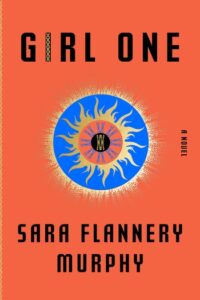
Girl One by Sara Flannery Murphy is available now from Farrar, Straus, and Giroux.




















